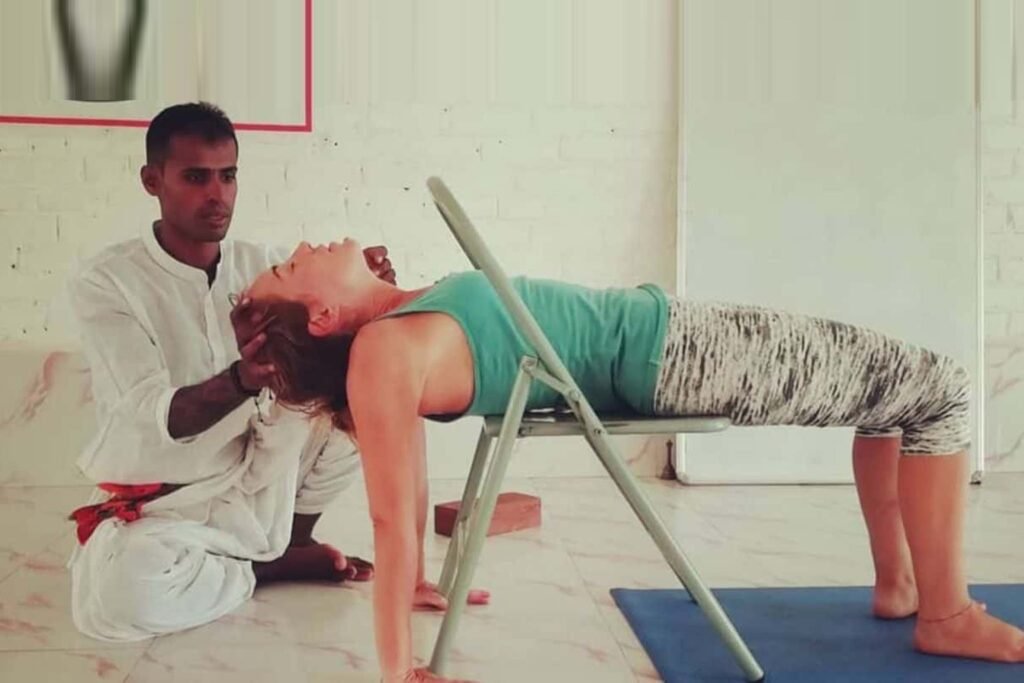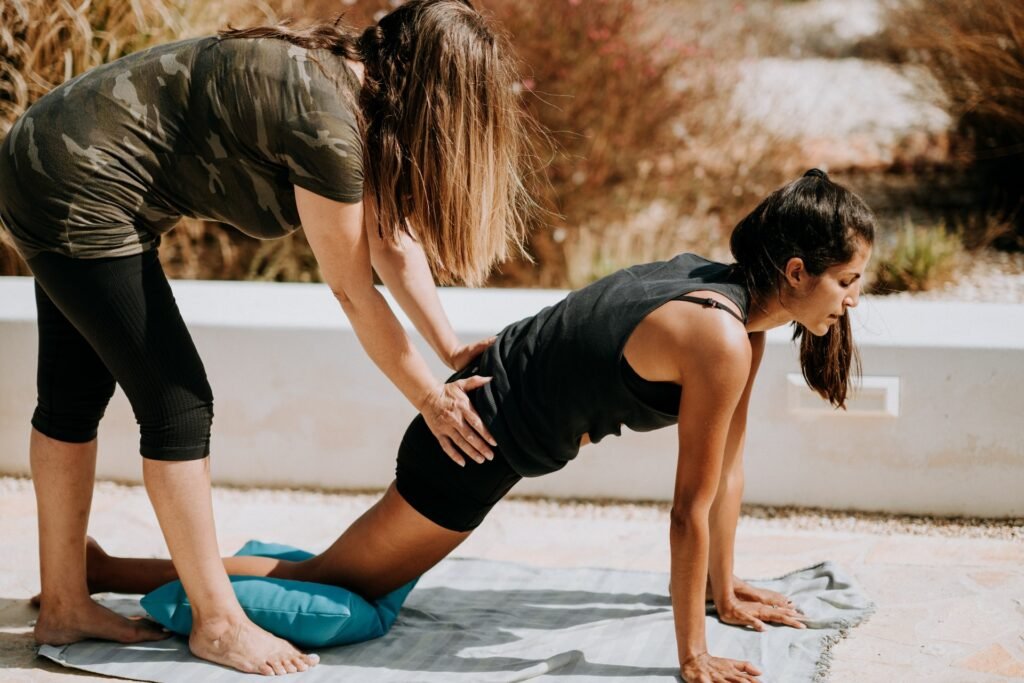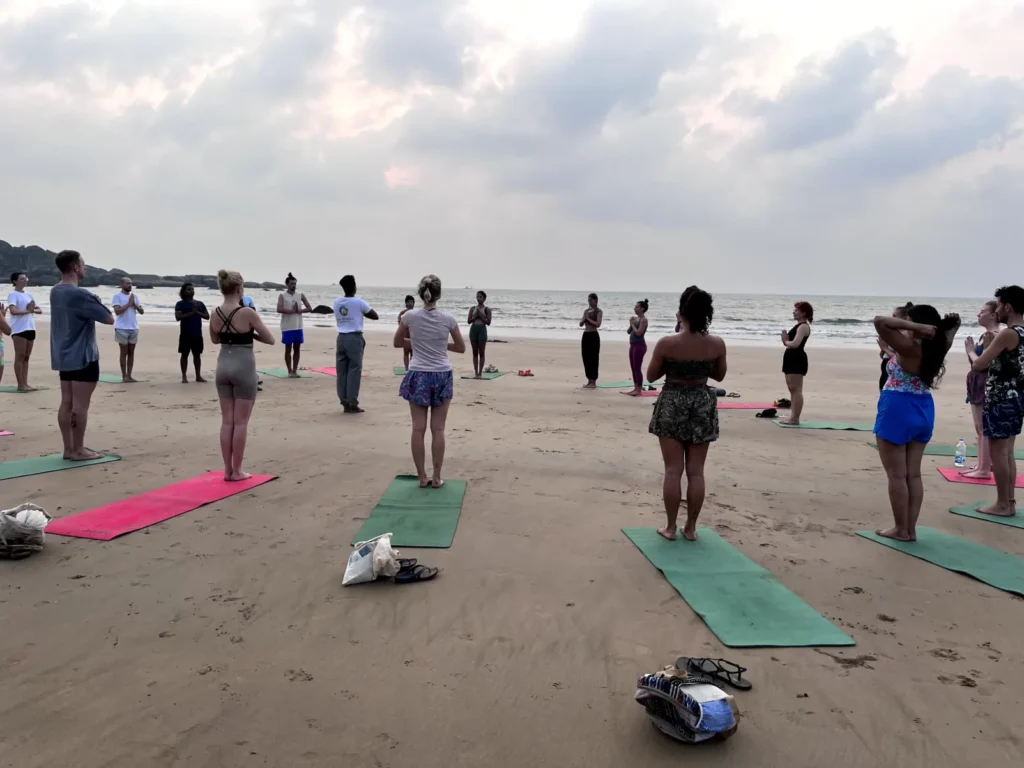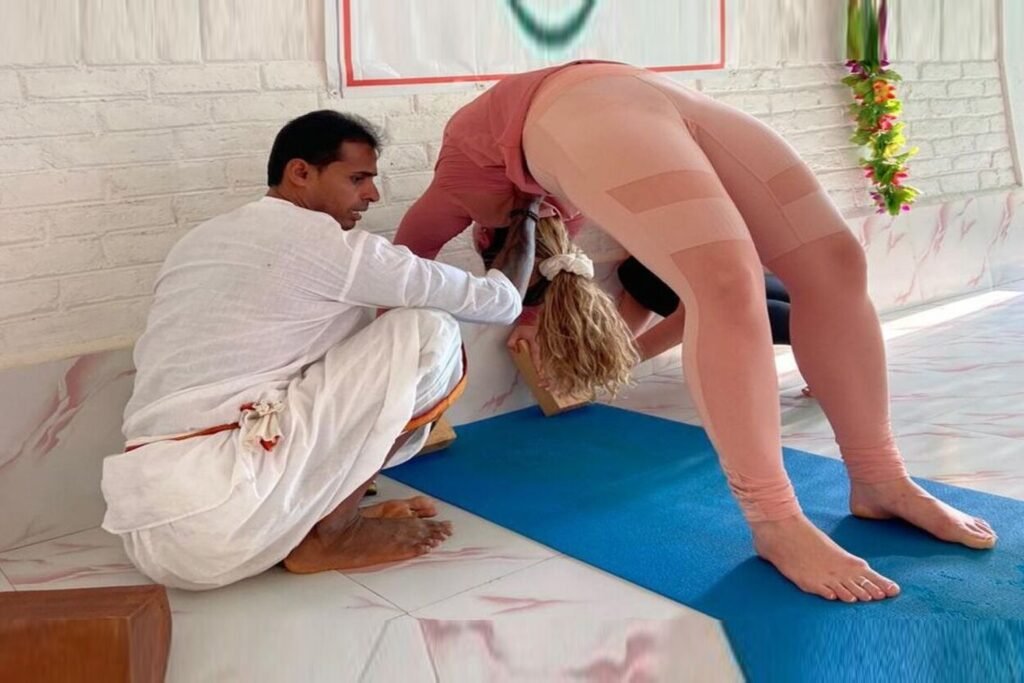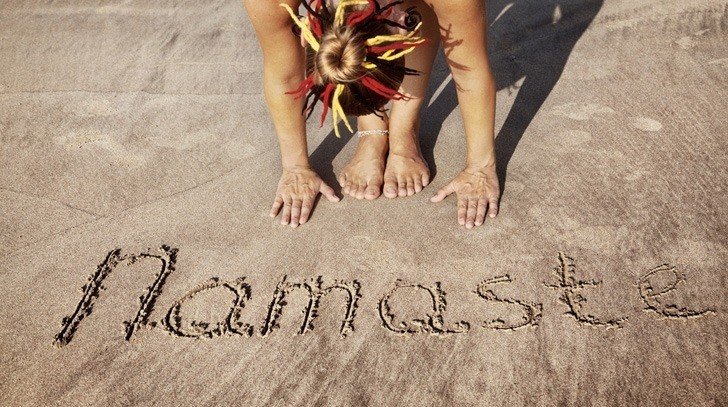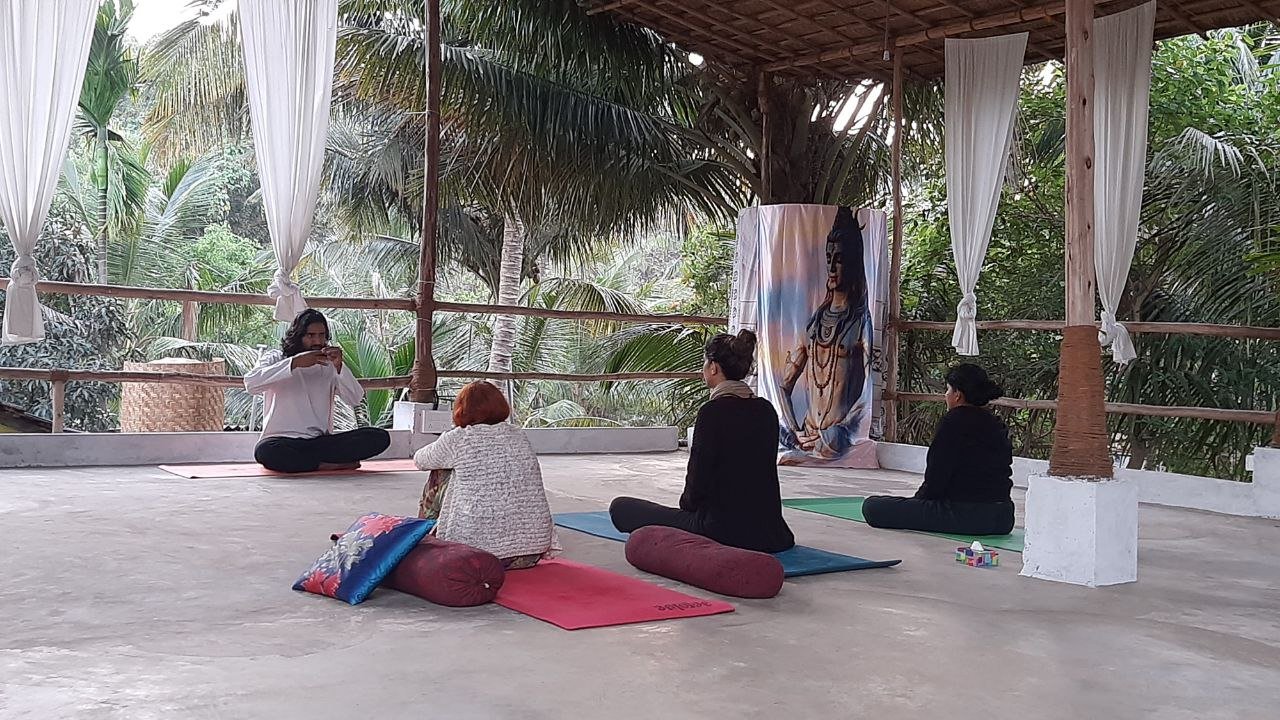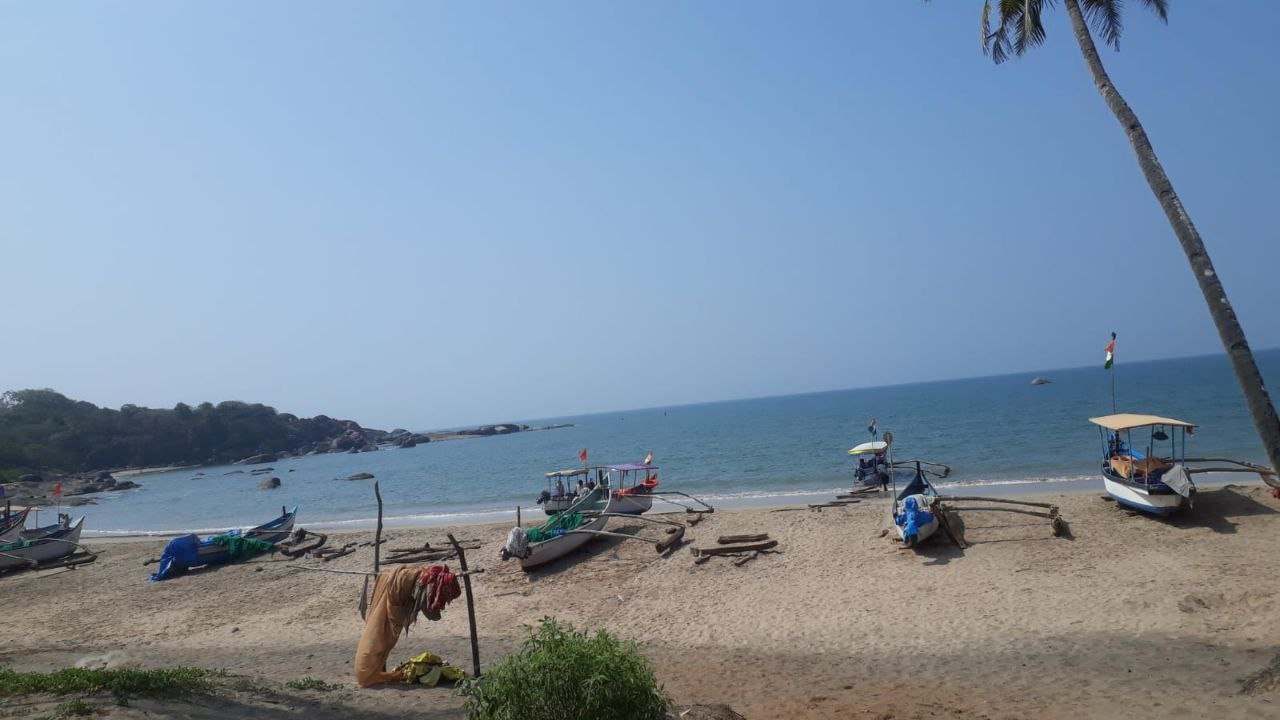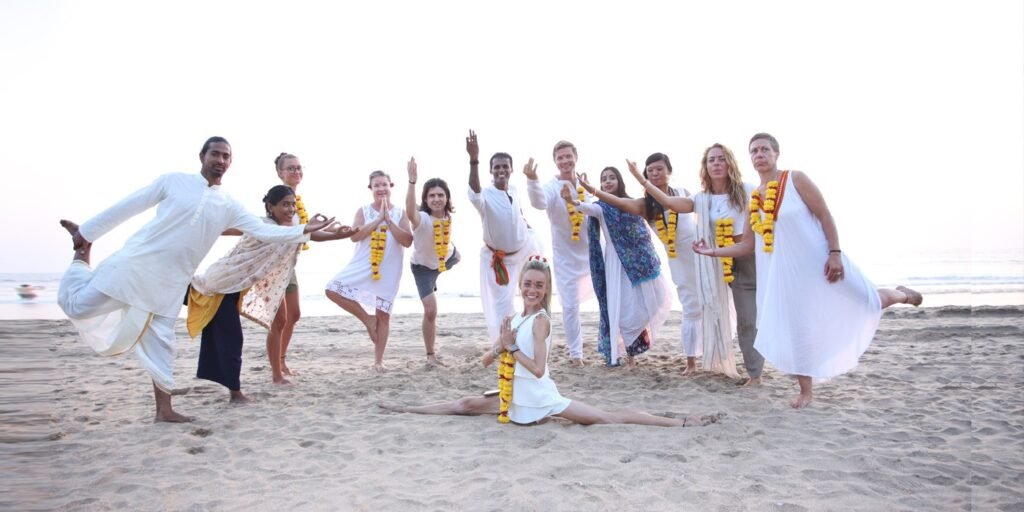Yin Yoga has been a style of interest for many yogis who are looking to help their students as well as themselves find the path to self-healing and recovery through yoga. It is a passive style of yoga during which the poses are held for longer duration while the yogi’s inner awareness is raised. Your only focus becomes the breath and body. It specifically works on stretching and relaxing the fascia (the connective tissues in the body) which in turn, rejuvenates our body and mind. This is similar to restorative yoga, but different in approach. While Yin Yoga focuses on stretching and relaxation by working on connective tissues in a slow-paced manner, the restorative yoga is all about healing and relaxation by supporting the body as it eases into complete revival,
WHY PRACTICE YIN YOGA?
Yin Yoga is practiced for two reasons primarily – one because it is quiet, slow yet reflective while it helps instill a sense of complete balance. It is ideal for those who are tired of running in their daily life and want to switch to something more relaxing and physically, mentally healing practices. Yoga is ideal for managing flight or fight response and helps the brain shift to the fight response rather than run away.
THE POWER OF SELF-HEALING IN YIN YOGA
Yin Yoga is practiced to attain several benefits, some of which include finding relief from stress, tensed muscles, anxiety, and to manage emotions that are uncomfortable. It is especially helpful for those who have been experiencing a burnout on account of stress or some events that are emotionally triggering the mental and physical state in a negative manner. It offers a calm space to recollect these emotions and let them pass through without being affected by them. Initially, the yogis might feel a variety of emotions percolating to the surface, but with a regular Yin Yoga practice, we learn to gradually push them away to the point of no return.
Certain scientific studies indicate that with mindfulness, we can work on reducing stress and anxiety as we start to live in the present moment rather than fidget about the future or remain stuck upon the past. And it is an excellent way to inculcate this mindfulness. The practice in turn helps with managing cardiovascular health as well as the body learning to manage stress in a much healthier manner.
THE YIN YOGA PRACTICE
Yin yoga uses a variety of props that provide support, comfort, and modification options. This allows you to go deeper into the poses and fully relax.
According to Greenspoon, “Props support the process of unwinding without overstretching, especially the tendons and ligaments. Experiencing pain, especially in your joints, is a sign that you need to use props or modifications. Additionally, in most postures, it’s beneficial to rest the head on a cushion to encourage relaxation.”
Most studios will provide blocks, bolsters, and straps. Eye pillows and blankets are sometimes offered. If you’re practicing at home, you can improvise with towels, belts, and pillows.
Yin Yoga is also believed to help the practicing yogis with:
- Improving flexibility
- Stretching the connective tissue (fascia)
- Boosting blood circulation
- improving sleep quality
- Enhance focus
- Increase self-awareness as well as breath awareness
Here are few important points to note while practicing Yin Yoga:
- Make sure your spine is well aligned with the movements of the joints to facilitate proper and safe practice of Yin Yoga. If you feel tired at some point, pause the practice and take a few deep breaths.
- If your breath work becomes labored, it is an indication to steep and rest.
PRACTICE THESE SIX YIN YOGA POSES FOR SELF-HEALING & RECOVERY
Wide-legged Child’s Pose (Balasana)
This amazing pose lets you draw your focus towards your inner being while you can relax like a baby. The pose relieves stress in the spine, hips, and thighs. Place a pillow or bolster under your forehead or chest for deeper relaxation.
Pigeon Pose (Eka Pada Rajakapotasana)
This pose helps improve hip mobility and flexibility in the joints while promoting digestive health and offering complete relaxation. Place a cushion or bolster under your upper body for ideal outcomes.
Reclining Hand-to-Big-Toe Pose (Supta Padangusthasana)
This one is an amazing pose to release stress from the hamstrings, back, and thighs.
Supported Fish Pose (Matsyasana)
This is a soft backbend pose that works on healing any pent up negative emotions stored in the back, stomach and hips. This pose is also a heart-opening asana that stimulates emotions of love, compassion and happiness from within.
Supine Spinal Twist (Supta Matsyendrasana)
The asana works towards improving the flexibility of the chest, glutes, and the back. Place a cushion or pillow between the knees or under the thighs for better results.
Legs-Up-the-Wall Pose (Viparita Karani)
This pose boosts blood circulation and elevates energy levels which contributes to complete revival of the mind and body. Practice this pose with a blanket or bolster under your hips for deeper comfort.
If you are keen to study yin yoga on a more sincere note and with the additional purpose to become a yin yoga specialist of its authentic form, then go for a Yin Yoga Teacher Training in India. You can pick the best yoga school in Goa, or places like Rishikesh, Kerala and Mysore. A yoga course in Goa is usually picked by those who want to practice yoga amidst a gypsy vibe and a chilled out local lifestyle.


